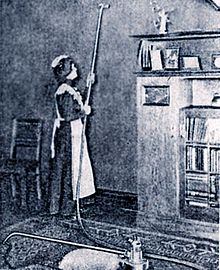By Molly Field
We were told this month to set out to offend someone (anyone) in our posts for the sake of engagement. This is a desperate attempt to get you, someone who's never commented on this blog before, to do the seemingly impossible: tell us what you think.
click here to hear some of your previous comments.
So I'm just going for it; this is totally full of non-sequiturs, so enjoy the ... whatever.
In an effort to prove to us that you have a pulse, working eyes, hands that can type, and that you're not a Chinese hacker and that you might disagree with anything I might say, I'm going to entice your wrath and write about the most devious of codependencies: how my writing benefits when someone's life is in the crapper.
If it's your life: I need it to stay there so I can write a story based on it without your permission. Because the more you stay asleep to the desperate existence you're hanging onto by a diaphanous thread, the better my content, the richer my dialogue, the tighter my story. The more asleep and blasé you are all the time, the better forsociopaths opportunists creatives like me.
I have someone in my life whom I've decidedlikes loves to feel sorry for itself. I'm going write in a gender neutral fashion or ich können sogar auf Deutsch und Sie benutzen das dritte Geschlecht, aber nein, ich will nicht*.
"Lesley's" rants are exhausting. This perforated, yo-yo height, hermaphrodite, Slavic cat dresserfriend of mine likes to fixate on the bad, drink too much, dress in charcoal gray, talk about death and sadness, and listen to The Cure, Nickelback, and Laura Branigan songs and also watch John Waters movies in the dark.
It's bad. "Lesley" needs help. And the name is all of it, the quotations included; its parents were new to the country when they adopted it from Illinois.
But I'm so torn!
"Lesley" is my muse for my main character, Chester Feltentooth! S/he's the pro/pre/ant-agonist (emphasis on agony) in my upcoming novel, People Who Should Have Stopped Trying: The Story of Potters in the Rain, out this summer by Too Bad So Sad press, a joint venture imprint of Cosmopolitan Magazine and Penzoil. Illustrations by Charles Addams and "The Family Circus" are blatantly stolen without any regard to copyright laws whatsoever.
Why so venom on poor "Lesley," Molly? Because I'm in a mood.
But I'm also in a tight spot... I mean, if "Lesley" wakes up and changes and improves its life, then where goes my muse? My fodder for my book? My manna for my novel? It's like this: I want "Lesley" to be just bad off enough to continue to live so I can steal its life for my story, but that's it. Any somatic improvement will knock this book off the best-seller's list.
So I tellthis person "Lesley," "You need help! You should take better care of yourself!" (While I walk it back into its dark house, inspect its mail for cash, throw away its bills, and guide it back to its cage. As its back is turned, I rest a case of Mad Dog 20/20 with bendy straws on its cage-side table, where I've tactfully replaced its clock and lamp with a carton of unfiltered Lucky Strikes next to my a sad clown Zippo lighter and play Carole King songs on repeat shuffle.)
Why? Because I'm a selfish, craven, unimaginative deviant who needs content and my brain is too jacked up on antibiotics from mygonorrhea strep throat, that's why.
I asked our fearless leader Carrie earlier,
"Are you serious about wanting to offend our readers? Because I'm about to let the snarling, scratching, feral, hissing, and rabid backwater cat out of its tattered burlap sack outside a Kinder Care,"
and she said this (after calling her lawyer):
How does that sound?! I'll tell you. It sounds like a cop out. (Just kidding, Carrie, I love you.)
So to all you mayonnaise chocolate cake eaters in your three-day-old pajamas, by all means: keep it up. I need you to maintain or elevate the lachrymose in your life so that I can finish my book. Hang out more with your toddler-pageant judges and repo friends! But ifyou suddenly run out of 20/20, call me you do want progress, and you really mean it -- give me the names and addresses of your toddler-pageant judges and repo friends because I need them. But think about the arts first. We need you.
However, change is hard. So if that second hour without a crisis in your life is too much, definitely consider dwelling in the past, do moan over things you can't change, and keep on licking those wounds, because as we all know: no wound gets better unless you fester over it and lick the hell out of it, just ask my coonhound "Gunther," who's now on his fifth round of antibiotics and steroid injections.
And don't even consider trying to write your own book. Only losers write their own books; here's a white zinfandel slushy, give your story to me. Want some pork rinds? Well, I just so happen to have some... right next to the VCR. Do you smoke? Is it me or is it too bright in here?
I can't say this any better than veteran New Yorker cartoonist, Roz Chast in the April 15, 2013, issue:
So... do you have any comments for me? Who's your muse? Want some 20/20?
*I can even go German on you and use the third gender, but no, I won't.
Tweet
We were told this month to set out to offend someone (anyone) in our posts for the sake of engagement. This is a desperate attempt to get you, someone who's never commented on this blog before, to do the seemingly impossible: tell us what you think.
click here to hear some of your previous comments.
So I'm just going for it; this is totally full of non-sequiturs, so enjoy the ... whatever.
 |
| http://www.scmp.com/sites/default/files/styles/980w/public/2013/02/04/comp.jpg?itok=9JXFZ9H3 |
If it's your life: I need it to stay there so I can write a story based on it without your permission. Because the more you stay asleep to the desperate existence you're hanging onto by a diaphanous thread, the better my content, the richer my dialogue, the tighter my story. The more asleep and blasé you are all the time, the better for
I have someone in my life whom I've decided
"Lesley's" rants are exhausting. This perforated, yo-yo height, hermaphrodite, Slavic cat dresser
It's bad. "Lesley" needs help. And the name is all of it, the quotations included; its parents were new to the country when they adopted it from Illinois.
But I'm so torn!
"Lesley" is my muse for my main character, Chester Feltentooth! S/he's the pro/pre/ant-agonist (emphasis on agony) in my upcoming novel, People Who Should Have Stopped Trying: The Story of Potters in the Rain, out this summer by Too Bad So Sad press, a joint venture imprint of Cosmopolitan Magazine and Penzoil. Illustrations by Charles Addams and "The Family Circus" are blatantly stolen without any regard to copyright laws whatsoever.
Why so venom on poor "Lesley," Molly? Because I'm in a mood.
But I'm also in a tight spot... I mean, if "Lesley" wakes up and changes and improves its life, then where goes my muse? My fodder for my book? My manna for my novel? It's like this: I want "Lesley" to be just bad off enough to continue to live so I can steal its life for my story, but that's it. Any somatic improvement will knock this book off the best-seller's list.
So I tell
 |
| http://static.tvtropes.org/pmwiki/pub/images/SadClown.jpg |
Why? Because I'm a selfish, craven, unimaginative deviant who needs content and my brain is too jacked up on antibiotics from my
I asked our fearless leader Carrie earlier,
"Are you serious about wanting to offend our readers? Because I'm about to let the snarling, scratching, feral, hissing, and rabid backwater cat out of its tattered burlap sack outside a Kinder Care,"
and she said this (after calling her lawyer):
Ultimately, you've got to decide what you want your name on. Don't worry about the site's reputation. If you feel that it would be helpful, write a foreword to the article that serves as a sort of disclaimer to prepare the readers for a change in tone and give it some context.
How does that sound?
How does that sound?! I'll tell you. It sounds like a cop out. (Just kidding, Carrie, I love you.)
So to all you mayonnaise chocolate cake eaters in your three-day-old pajamas, by all means: keep it up. I need you to maintain or elevate the lachrymose in your life so that I can finish my book. Hang out more with your toddler-pageant judges and repo friends! But if
However, change is hard. So if that second hour without a crisis in your life is too much, definitely consider dwelling in the past, do moan over things you can't change, and keep on licking those wounds, because as we all know: no wound gets better unless you fester over it and lick the hell out of it, just ask my coonhound "Gunther," who's now on his fifth round of antibiotics and steroid injections.
And don't even consider trying to write your own book. Only losers write their own books; here's a white zinfandel slushy, give your story to me. Want some pork rinds? Well, I just so happen to have some... right next to the VCR. Do you smoke? Is it me or is it too bright in here?
I can't say this any better than veteran New Yorker cartoonist, Roz Chast in the April 15, 2013, issue:
So... do you have any comments for me? Who's your muse? Want some 20/20?
*I can even go German on you and use the third gender, but no, I won't.
Tweet


.jpg)





